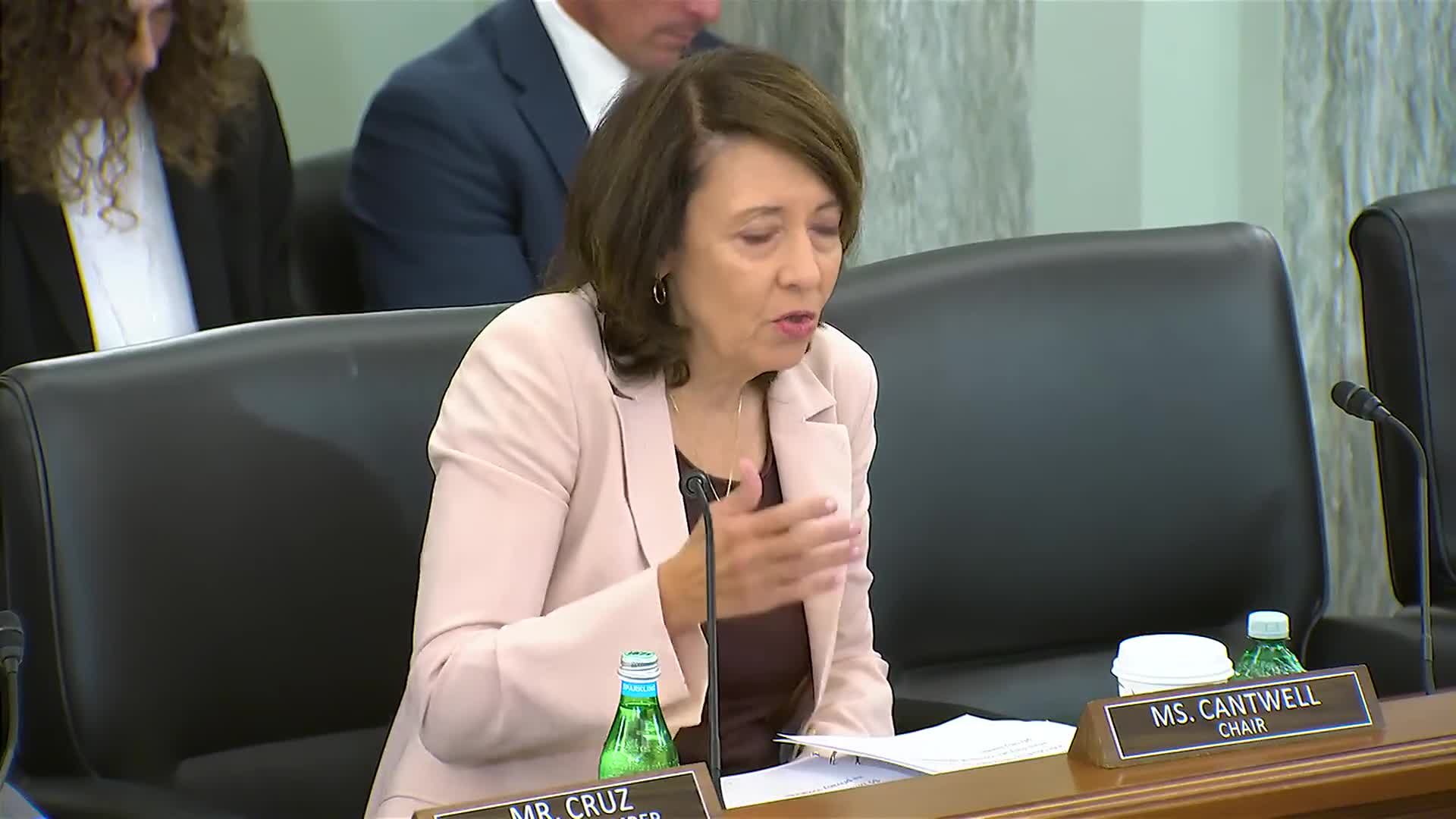Senate hearing scrutinizes FTC ethics and commissioner redaction practices
September 21, 2023 | Commerce, Science, and Transportation: Senate Committee, Standing Committees - House & Senate, Congressional Hearings Compilation
This article was created by AI summarizing key points discussed. AI makes mistakes, so for full details and context, please refer to the video of the full meeting. Please report any errors so we can fix them. Report an error »

During a recent U.S. Senate Committee on Commerce, Science, and Transportation meeting, the spotlight was on the nominations for key positions at the Federal Trade Commission (FTC) and the Consumer Product Safety Commission (CPSC). A significant topic of discussion was the ongoing challenges surrounding the transparency and ethical conduct of the FTC under Chair Lina Khan.
Senator Ted Cruz raised concerns about the FTC's reputation, which he believes has suffered in recent years. He pointed out that Chair Khan has not appeared before the committee for oversight since April 2021, leaving many questions about her leadership unanswered. Cruz specifically highlighted a controversial incident involving former FTC Commissioner Christine Wilson, who resigned citing ethical concerns regarding Khan's participation in a merger review involving Meta. Wilson's dissent was heavily redacted by the current FTC majority, which Cruz argued was an unprecedented move that obscured critical information about potential ethical violations.
In response, nominee Commissioner Slaughter defended the commission's practices, stating that the redactions were in line with a long-standing rule designed to protect staff deliberations. Slaughter emphasized the importance of maintaining a candid environment for staff to provide honest advice, suggesting that public disclosure could hinder this process. However, Cruz and other senators expressed skepticism about whether the commission's actions were in the public's best interest.
The meeting also touched on broader issues, such as the need for reform in the Consumer Product Safety Act, which currently limits the disclosure of vital safety information to consumers. This topic underscores the ongoing debate about balancing consumer protection with corporate confidentiality.
As the committee moves forward with the nominations, the discussions highlight critical questions about the FTC's transparency and accountability, setting the stage for potential reforms and a reevaluation of the commission's practices. The outcomes of these nominations could significantly impact consumer protection policies and the regulatory landscape in the coming years.
Senator Ted Cruz raised concerns about the FTC's reputation, which he believes has suffered in recent years. He pointed out that Chair Khan has not appeared before the committee for oversight since April 2021, leaving many questions about her leadership unanswered. Cruz specifically highlighted a controversial incident involving former FTC Commissioner Christine Wilson, who resigned citing ethical concerns regarding Khan's participation in a merger review involving Meta. Wilson's dissent was heavily redacted by the current FTC majority, which Cruz argued was an unprecedented move that obscured critical information about potential ethical violations.
In response, nominee Commissioner Slaughter defended the commission's practices, stating that the redactions were in line with a long-standing rule designed to protect staff deliberations. Slaughter emphasized the importance of maintaining a candid environment for staff to provide honest advice, suggesting that public disclosure could hinder this process. However, Cruz and other senators expressed skepticism about whether the commission's actions were in the public's best interest.
The meeting also touched on broader issues, such as the need for reform in the Consumer Product Safety Act, which currently limits the disclosure of vital safety information to consumers. This topic underscores the ongoing debate about balancing consumer protection with corporate confidentiality.
As the committee moves forward with the nominations, the discussions highlight critical questions about the FTC's transparency and accountability, setting the stage for potential reforms and a reevaluation of the commission's practices. The outcomes of these nominations could significantly impact consumer protection policies and the regulatory landscape in the coming years.
View the Full Meeting & All Its Details
This article offers just a summary. Unlock complete video, transcripts, and insights as a Founder Member.
✓
Watch full, unedited meeting videos
✓
Search every word spoken in unlimited transcripts
✓
AI summaries & real-time alerts (all government levels)
✓
Permanent access to expanding government content
30-day money-back guarantee
